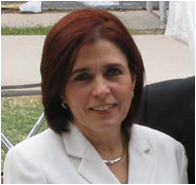Subscribe to:
Post Comments (Atom)
This blog was created for the students taking the course of Bilingual Education in the Education Program at Universidad Iberoamericana in Torreón, Coahuila, México.
María Matilde García Valdés M.A.Ed.

Professor, certified translator, interpreter.
"We cannot hold a torch to light another's path without brightening our own."
BEN SWEETLAND
BEN SWEETLAND
Caleb Zilmer was correct when he gave these three recommendations. Most of the times, as teachers we tend to focus in the fast improvement of our students while learning a second language, before stopping and analizyng what are their feelings toward this action. I think that is preferable to really make them feel involve with the culture and not just leave the teachings in new vocabulary, spelling or grammar.
ReplyDeleteI did like this article because its simplicity and understandable; the recommendations the author made are good and easy to apply.
I like this article, because they summarize all the tips and the information that we have when we see bilingual education.
ReplyDeleteIt´s important to know, that not only the contents educate, the jokes and the informal conversations give to the students and other perspective of the learning of a language, I think the teachers need to give more emphasis on this.
I liked the way in which the author does we pay attention to the article because it begins with jokes, for example: "Did they study the language after the magic age of eight? " It was funny.
ReplyDeleteWell, I agree with Caleb Zilmer, and I think that we as a teachers have to create a safe environment because It's very important the students feel comfortable in order to let it flow the language, I mean, they want to speak fluency doesn´t matter if the sound isn´t right.
i like the articles because each one gives you specific stragedies or recomendations to aply with your students and also as students gives tips for increase your english.
ReplyDeleteIm agree with Zilmer with this tips, because are easy and make teachers better and the students with conficense when they learn a language